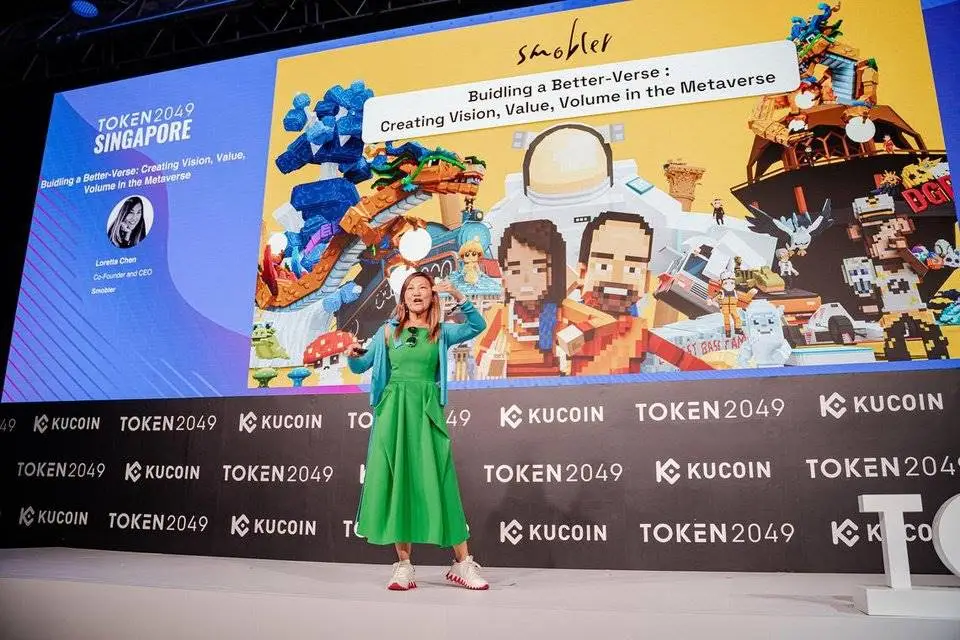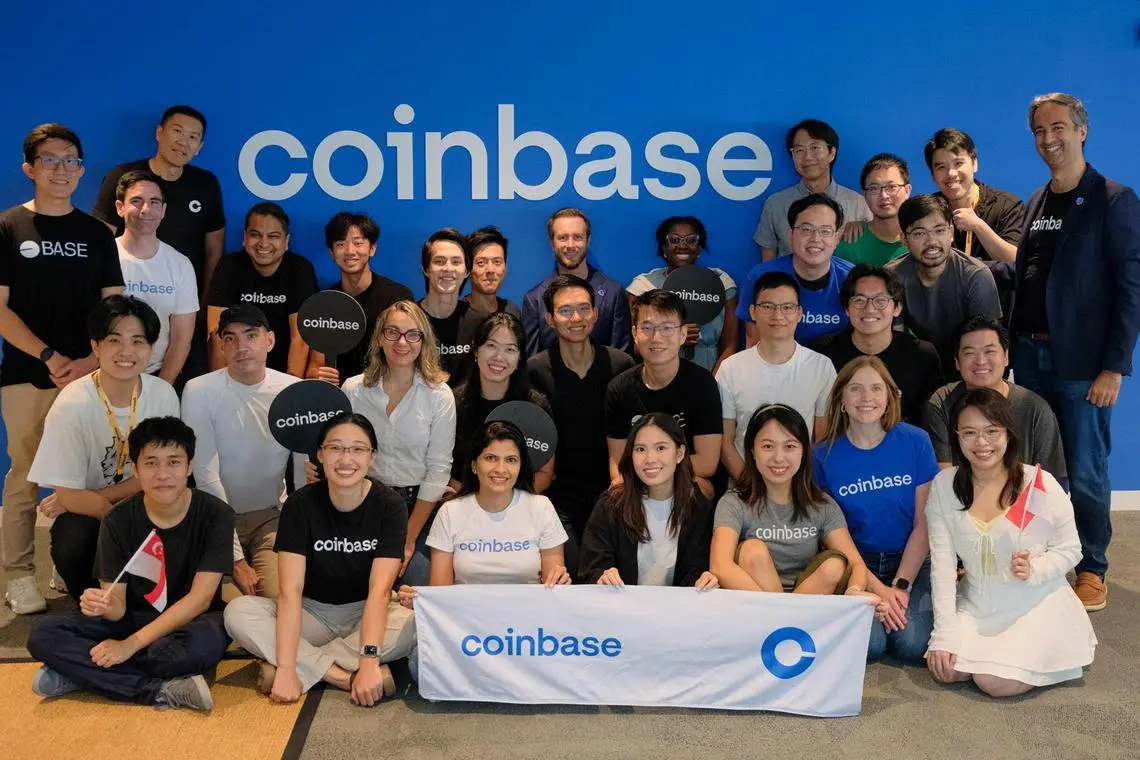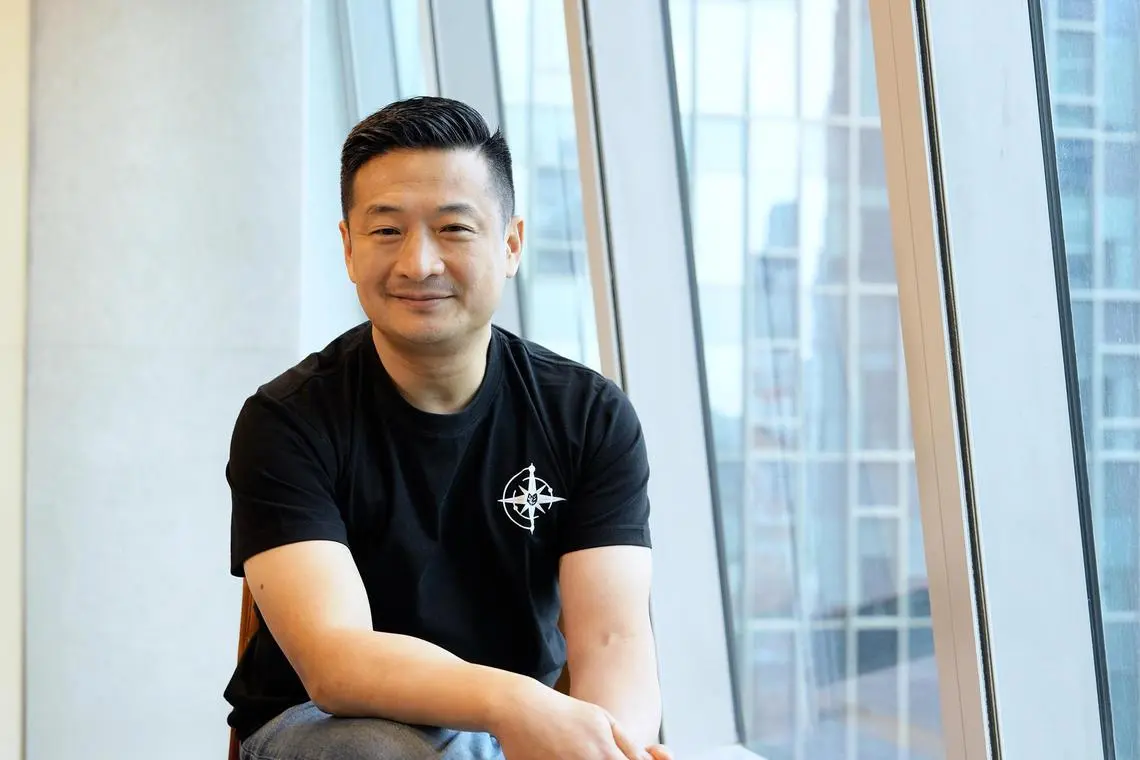Author: Teo Kai Xiang
Translation: Deep Tide TechFlow
In 2024, Singapore hosted the world's largest cryptocurrency conference—Token2049, attracting numerous participants.
Key Points
In 2022, the cryptocurrency industry experienced multiple collapses, including FTX and Three Arrows Capital, but the subculture surrounding cryptocurrencies is reviving.
The cryptocurrency subculture blends idealism with opportunism, attracting a young, tech-savvy crowd, but it is also rife with fraud and scams.
With increased regulation and growing institutional interest, cryptocurrencies are gradually gaining legitimacy, attracting talent from traditional finance and technology sectors. However, some industry insiders worry that this may lead to the cryptocurrency industry losing its original spirit.
Singapore—if you ask anyone working or investing in the cryptocurrency field about the industry's prospects in 2022, they might purse their lips and pause for a moment.
That year, the cryptocurrency industry went through a series of shocking collapses. At that time, one of the world's largest cryptocurrency exchanges, FTX, filed for bankruptcy, and Singapore's cryptocurrency hedge fund, Three Arrows Capital, collapsed, owing creditors over $3 billion (approximately 3.85 billion SGD). The values of cryptocurrencies TerraUSD and Luna plummeted, erasing a total market value of $45 billion.
Cryptocurrency prices fell sharply, layoffs swept across the industry, and many observers predicted a crypto winter was coming.
Three years later, the industry atmosphere has changed significantly.
Driven by the friendly cryptocurrency policies of former U.S. President Trump and the gradual adoption of cryptocurrencies by large financial institutions like Goldman Sachs, BlackRock, and Singapore's DBS Bank, Bitcoin's value soared to an all-time high, breaking the $100,000 mark and peaking at $140,000 in January this year.
The world's largest cryptocurrency conference, Token2049, is expected to welcome 25,000 participants in Singapore this October.
In 2022, when Token2049 was first held in Singapore, it attracted only about 7,000 attendees, with the event venue occupying just one floor of the Marina Bay Sands Expo and Convention Centre.
By 2025, the scale of the conference will expand to five floors, showcasing the rapid development and increasing influence of the cryptocurrency industry.
The crypto community is making a strong comeback. Among the 15 people interviewed by ST, the overall sentiment is optimistic, even celebratory.
"After Trump was elected, the cryptocurrency industry surged," said 29-year-old Kaushik Swaminathan, strategic head of Web3 security company Zellic. Web3 is a term used in the industry to describe the new generation of the internet driven by blockchain technology.
"When prices go up, people feel wealthy. When people feel wealthy, they tend to do some extravagant things," said the Yale-NUS College graduate. "Although the broader tech market may be experiencing contraction or hiring slowdowns, the cryptocurrency industry seems to be the opposite."
He mentioned the recent EthCC cryptocurrency conference held in Cannes, which attracted 6,400 attendees. The city in southern France, known for attracting the wealthy and celebrities, was "taken over" by "crypto people" during June, with venues including yachts, castles, and Michelin-starred restaurants.
"If you're attending a 'work conference' on the French Riviera in the summer, that probably means things are going well," he remarked. "The confidence in the crypto community has never really disappeared, and when Bitcoin's trading price exceeds $100,000, people are more willing to participate in such luxurious events."

In 2024, the Token2049 conference held in Singapore attracted over 20,000 participants.
Image source: TOKEN2049
The crypto bro culture—originating from internet memes mocking central banks and the countercultural idealism of decentralized finance—is gradually permeating mainstream society.
Despite being mired in scandals, it is now winning the support of recent graduates who once aspired to enter traditional finance or large tech industries.
Anti-Establishment Wave
The cryptocurrency industry mixes idealism with opportunism, nurturing a unique "anti-establishment" culture that is starkly different from traditional tech and finance sectors.
41-year-old Singaporean cryptocurrency enthusiast Imran Mohamad recalls that in 2010, an enthusiastic entrepreneur gifted him a USB drive containing Bitcoin. At that time, Bitcoin was an obscure technology discussed only in some fringe online forums, valued at just a few cents.
"I don't know where that USB drive went," said Imran, now the Asia-Pacific marketing head of blockchain company Move Industries. "If I had the foresight back then, maybe I wouldn't need to be interviewed by you today."

Imran Mohamad's cryptocurrency career has witnessed multiple cycles of boom and bust in the industry.
Image source: Provided by Imran Mohamad
Subsequently, Imran Mohamad's intermittent relationship with the cryptocurrency industry aptly reflects the multiple cycles of boom and bust in this field. During the initial coin offering (ICO) craze in 2017, he ran a marketing company serving cryptocurrency clients.
"For most of these companies, nothing really materialized," said the National University of Singapore (NUS) business school graduate. "The real profits went to those who minted tokens—then they disappeared without a trace."
These public online sales were driven by social media hype and revolved around white papers that outlined how the proceeds would be used to develop "hot new tokens" and how much profit investors could gain by buying in early.
Having to threaten some cryptocurrency clients with legal action for not paying their fees led him to develop a distaste for the industry. Later, he returned to the cryptocurrency sector in 2022 as the marketing head of the cryptocurrency trading platform Kyber Network—until the platform was hacked, losing assets worth over $50 million. Although Kyber eventually reimbursed the creditors' losses, he noted that those investors still missed out on potential profit opportunities.
Such experiences are not uncommon in the cryptocurrency industry, where insiders often harbor complex feelings of "fear of missing out" (FOMO), filled with optimism, and even accept malicious behavior as the norm.
Unlike traditional industries, cryptocurrency professionals typically do not introduce themselves through LinkedIn or hand out business cards; instead, they prefer to communicate via Telegram and X (formerly Twitter) or network at events that blur the lines between work and entertainment.

Mr. Aneirin Flynn (left, photographed at the startup competition Meet The Drapers) chose to forgo college and dive straight into the workforce.
Image source: Failsafe
Young Singaporeans like 31-year-old Aneirin Flynn are typical representatives of this subculture's free-spirited style. As the CEO and founder of a cryptocurrency cybersecurity startup, he hired an engineer who had previously hacked his company for discovering a vulnerability in its code.
In the cryptocurrency industry, many operate anonymously, avoiding the use of real names or photos for fear of being "doxxed" or hacked.
"He was unwilling to reveal his real name or where he was from at the time," Flynn recalled, later discovering that the hacker was from Egypt. After months of collaboration and building trust, the hacker ultimately proved to be a "good guy."
He added, "Today, he has become a pillar of our company. He is a burly man with a thick beard, has kids, and is the friendliest person I've ever met."
However, he also admitted, "But it is indeed possible that he could be a bad person."
Even Flynn's company, FailSafe, was inspired by an incident in 2022 when he lost about $20,000 due to trusting the wrong developer—he suspected it was because he trusted the wrong developer. After obtaining A-level certificates from Victoria Junior College, he dropped out of college to join a startup.
He pointed out that while Web3 advocates an idealistic and "trustless" internet future without central authority, the reality is "this means you can only rely on yourself."
Due to the prevalence of fraud, face-to-face interactions have become increasingly important for cryptocurrency workers like Flynn.
Therefore, while others may prefer to network by attending events surrounding the annual Token2049 conference, he prefers to connect through activities that involve "sweating together and understanding how we operate under pressure."

Token2049's multicultural atmosphere is filled with meme elements and a relaxed vibe.
Image source: Token2049
Token2049 is a microcosm of the cryptocurrency industry's multiculturalism, attracting speakers from various fields, including Ethereum co-founder Vitalik Buterin from Canada, British F1 driver Lando Norris, American whistleblower Edward Snowden, and Australian rapper Iggy Azalea.
Insiders reveal that the real events do not happen on the conference stage but are concentrated in various peripheral activities, such as invitation-only social gatherings and parties. At the exhibition site, participants can experience cold plunge pools or ride mechanical bulls, just a few meters away from panel discussions.
Resistance Currency

Meme culture permeates the annual Token2049 conference. "Hodl" is the rallying cry encouraging cryptocurrency investors to hold onto their assets during turbulent times.
Image source: TOKEN2049
The origin of the cryptocurrency industry's anti-mainstream energy lies at the intersection of fringe internet communities, technology, and finance.
“Cryptocurrency is essentially a rejection of financial institutions and central banks,” said Dr. Andrew Bailey, a philosophy professor at the National University of Singapore and author of the book Resistance Money (2024). “Those attracted to this idea often hold a skeptical attitude toward other types of institutions and norms.”
The concept of modern cryptocurrency emerged after the 2008 financial crisis, when libertarians, anarchists, and some criminals sought decentralized alternatives to address a financial system they believed no longer served their needs.
Different generations enter the cryptocurrency space in different ways. Early adopters of cryptocurrency were mostly computer programmers who may have encountered the field through fringe internet communities or online black markets. Later adopters, such as Gen Z and younger millennials, are more likely to engage with cryptocurrency through viral memes or influencers promoting new paths to success.
Dr. Bailey noted that disillusionment serves as a common bonding force.
Many who embrace this subculture believe they have discovered a realm where they can achieve substantial short-term gains beyond others.
“I don’t want to underestimate people’s desire to pursue success in a world they perceive as unfair,” he said. “The 18 to 24-year-olds I’ve interacted with have a strong sense of this. I would say their feelings are more intense now than those of their peers 5 to 10 years ago.”
The result is a subculture dominated by young, male, tech-savvy individuals who are dissatisfied with financial institutions or feel disenfranchised.

Similar to the tech industry, the cryptocurrency field remains male-dominated.
Image source: TOKEN2049
34-year-old Mr. Jeremy Tan is one example of the public's shifting attitude toward cryptocurrency. The Nanyang Technological University business graduate is running as an independent candidate in the 2025 elections for the Mountbatten SMC, advocating for the government to adopt Bitcoin as a reserve currency.
Mr. Tan stated that the end of the 2008 financial crisis gave rise to a new countercultural movement, with movements like “Eat the Rich” and “Occupy Wall Street” sparking his interest in Bitcoin. This interest stems from his impoverished upbringing and a desire to find assets that would not depreciate over time.
“Now, we are seeing similar types of movements,” he said, noting that similar economic discontent is driving Singaporeans' interest in cryptocurrency. “Our generation’s ‘Occupy Wall Street’ will be the issues of artificial intelligence and youth unemployment.”
This viewpoint is echoed by other cryptocurrency enthusiasts and advocates. Some complain about their inability to join the “high-net-worth club,” deeming the existing financial system “unfair,” and praise cryptocurrency for its potential to level the playing field by creating a space without established experts.
However, the decentralized ideals of Web3 do not imply that the cryptocurrency subculture can self-regulate or possess a unified ideology.
Although cryptocurrency technology was initially envisioned as a “better” alternative to centralized finance, most respondents view the growing interest from regulators and banks as a positive sign.
Mr. Tan also weighed the contradictions of this ideology: “The original ideology was that currency was being devalued, and we needed ‘resistance money’ to combat the government.”
“I think the original ideology is meeting its updated form, as stablecoins and Bitcoin make a revolution possible—one that ultimately relies on technology and mathematics rather than poor fiscal planning.”
No Different from The Wolf of Wall Street

The celebration party for Token2049 in Singapore in 2024.
Image source: TOKEN2049
This anti-establishment atmosphere is something many in the cryptocurrency industry are eager to shed.
Almost all industry insiders interviewed by ST attempted to downplay the connection between the industry and a luxurious lifestyle or global travel, instead emphasizing the “growth” of the industry since 2017.
22-year-old Columbia University student Joash Lee invests in Web3 and AI startups through Iron Key Capital, a pooled fund club focused on investing in startups.
He stated that while it is not uncommon for crypto companies or conferences to rent yachts and nightclubs for events, this phenomenon has become relatively restrained compared to the “free money” era before 2022. In that era, simply writing “Web3” on a business plan would attract venture capitalists eager to fund seed rounds.
Others noted that the cryptocurrency industry’s “immaturity” tends to lean toward this lifestyle, such as extravagantly hiring models and influencers to join teams and referencing obscure memes to design clothing and host parties.

Dr. Loretta Chen (pictured attending a Token2049 event) believes that the excesses of cryptocurrency are a sign of the industry’s immaturity.
Image source: SMOBLER
Dr. Loretta Chen, founder and CEO of local Web3 startup Smobler, stated, “When the concept of cryptocurrency was introduced, the younger generation and digital tech enthusiasts embraced it.”
“When you’re young and suddenly have so much money, you say, ‘Wow, let’s throw a party,’ right?”
People often compare the current situation to the excesses of Wall Street in the 1980s—as depicted in the 2013 film The Wolf of Wall Street—before regulations began to impose discipline.

In 2024, Ms. Soh Wan Wei (right) poses with Hide the Pain Harold (a popular meme) at an ARC community gathering. ARC members purchased Memeland tokens in the early stages.
Image source: PROVIDED BY SOH WAN WEI
Another notable example of the industry embracing party culture is the private members' club ARC Community, known for its luxurious annual parties hosted by its Singaporean co-founders, including singer JJ Lin and influencer Elroy Cheo.
Members of this social club must own its non-fungible token (NFT), a digital asset currently selling for a starting price of $4,000 on the online marketplace OpenSea.
Members can purchase Memecoin cryptocurrency created by the internet culture site 9GAG, whose founder is also an ARC member. In 2024, they gathered to host a meme-filled celebration, inviting guests like Memecoin’s ambassador Hide the Pain Harold. Since then, the value of Memecoin has significantly declined.
Regarding related issues, ARC Community brand manager Jaclyn Lee declined to discuss the club's parties or the lifestyle and social networking habits of its members.
She stated, “We try to avoid these angles because it further deepens the impression that Web3 is not formal or legitimate enough.”
This sensitivity to external perceptions explains why the cryptocurrency industry is increasingly avoiding discussions about lavish parties and the high-end lifestyles of founders, instead opting to report on founders' stories in magazines and how they fell in love with the technology to reshape their image.
Chasing the “Waterfall”

Members of the cryptocurrency field are striving to downplay their association with lavish parties and global travel.
Image source: TOKEN2049
Dr. Li Xiaofan, an assistant professor at the National University of Singapore (NUS) researching cryptocurrency and cybersecurity, pointed out that the technology underpinning cryptocurrency is still in its early stages, meaning that while some application scenarios exist, excessive speculation remains the norm.
Dr. Li recalled instances where some students were inspired to intern or pursue careers in the cryptocurrency industry but ultimately felt disappointed.
He stated, “They thought they would be involved in system design or making technical improvements in certain areas, but they found it was more like sales work. Acquiring clients and funding is far more important than developing technology.”
The lack of cryptocurrency regulation in many parts of the world means the allure of short-term gains (often through exploiting information asymmetries among investors) can be hard to resist.
The ICO (Initial Coin Offering) bubble of 2017 was a result of the public's influx into the cryptocurrency industry, with many acting out of fear of missing out on early investment opportunities like those in Apple or Google. However, unlike IPOs (Initial Public Offerings), the risks of investing in crypto assets are not mitigated by financial reporting and audits, leaving investors to operate in a fog of war.
This involves scams and other activities, such as insiders profiting at the expense of other investors, exaggerating the actual connection between products and blockchain technology, and building ecosystems to facilitate more crypto activities.
“Those attracted to this industry do possess certain traits,” Dr. Li observed. “In my view, this may delay the industry’s progress toward long-term benefits.”

Experts say that hype and speculation drive the cryptocurrency industry's focus on quick profits rather than the creation of long-term value.
Image source: TOKEN2049
“The way to make money in cryptocurrency is to think of it as a waterfall made of manure,” Dr. Bailey summarized the prevailing worldview in the cryptocurrency circle. “Either the manure is on you, or you’re standing higher up, safe and sound, and then you dump the manure on others.”
This normalization of malicious behavior resonates with many in the industry.
For example, a marketing professional believes that the “extremely high failure rate” is no different from that of tech startups. Another marketing professional, when asked about their feelings after the highly publicized stock market crash in 2022, stated, “It’s normal to go through something like this,” while the joy of being in an emerging industry compensates for these regrets.
The concept of a “zero-sum game,” where profit for one means loss for another, is a common term within the industry.
“This is PvP (player versus player), not PvE (player versus environment),” Dr. Bailey added, borrowing terminology from video games to describe the competitive rather than cooperative behavior among cryptocurrency users. “If you take something from it, it means someone is putting that money in.”

Kaushik Swaminathan, a graduate of Yale-NUS College, stated that since entering the cryptocurrency industry in 2021, his mindset has become more transactional.
Image source: Provided by Kaushik Swaminathan
As Mr. Swaminathan observed, “When cryptocurrency loses value, people feel frustrated; when it makes money, people feel excited. No one really cares about the scandals; it’s just that the aftermath of the scandals is the losses. To survive in the cryptocurrency space, you need to have thick skin, and those with thick skin are mostly numb to the noise from the outside.”
What unsettles him is that since entering the cryptocurrency industry in 2021, his mindset has gradually become more “transactional.”
“This is not what I like,” he said. “Once you fall into the cryptocurrency black hole, money becomes the currency or language of all interactions.”
This also means that when someone presents an idea to him at a meeting, his default mindset is to question whether he is being taken advantage of. He explained, “People often use a phrase—‘I don’t want to be your exit liquidity,’ meaning ‘I don’t want to be the sucker whose assets you dump.’”
“Cult”
37-year-old Ms. Soh Wan Wei has been investing and working in the cryptocurrency field since 2017, and she holds a harsher view, stating that she dislikes the prevalent “I can do whatever I want” culture in this space.

Ms. Soh Wan Wei (as shown speaking at a fintech event) stated that money is distorting the moral compass of those in the cryptocurrency industry.
Image source: SIBOS
She said, “People from Binance went to prison, and when they come out, they are treated like gods.” She was referring to the former CEO of the cryptocurrency exchange Binance, Changpeng Zhao, who was sentenced to four months in prison for money laundering in 2024.
She added, “If someone’s net worth suddenly increases a thousandfold, they are worshipped like a god. This phenomenon is very cult-like.”
She pointed out that in the cryptocurrency industry, wealth seems to equate to morality. She recalled instances of cryptocurrency figures flaunting photos of themselves in castles and helicopters. To build relationships, she would “clap and say, ‘That’s great, I’m happy for you.’”
Nevertheless, she also acknowledged that the volatility of the cryptocurrency industry has an addictive quality. Despite the risks of “rug pulls” and the potential for asset values to plummet, the adrenaline rush from a successful bet remains captivating.
“It feels like buying Labubus,” she said (referring to a popular blind box toy series launched by Pop Mart).
Nowadays, she prefers to stay away from cryptocurrency conferences. “The barriers to entry are too low,” she added, “you can get rich just by buying Bitcoin.”
This volatility further reinforces the ideological fervor of the cryptocurrency subculture while weeding out those who lack the perseverance or belief to stick around after high-profile collapses.
A few weeks after joining the Web3 software company Animoca Brands in 2022, Mr. Brian Chan witnessed the uproar caused by the cryptocurrency Luna and the subsequent spiral decline of FTX, marking the industry’s entry into a bear market.
Mr. Chan stated, “The volatility of cryptocurrency is a feature of the industry, not a flaw.” As the Vice CEO of Animoca Brands, he travels between Hong Kong and Singapore, responsible for developing a blockchain chess game called Anichess in collaboration with chess.com.
Mr. Chan observed that this volatility is not only eliminating players within Animoca Brands but also across the entire industry.
The uncertainty in the industry also affects how hiring managers screen candidates.
“When hiring, we do pay attention to culture and values,” Mr. Chan stated. “When I recruit for my team, I care less about their resumes or backgrounds and more about what they have actually done in the cryptocurrency space. This helps you judge whether this person will stick around in the industry long-term, whether they are true believers or just chasing profits.”
This emphasis on non-traditional metrics is part of what attracts young, success-driven talent to the cryptocurrency industry, especially compared to traditional finance, which places more value on degrees from prestigious universities.
However, Mr. Chan noted that the current wave of interest in the cryptocurrency industry is different. Past growth cycles were often driven by “hype and frenzy of selling,” while 2025 is seeing more professionals in suits bringing new legitimacy to the field.
Is Singapore Becoming the Cryptocurrency Capital?

OKX's Singapore office is located in the Marina Bay Financial Centre. The company has over 900 employees in Singapore.
Image: OKX Singapore
Despite the global resurgence of cryptocurrency brotherhood culture, opinions among industry insiders vary on whether Singapore can become a hub for the cryptocurrency industry. The local regulatory policies present a complex picture.
In June of this year, the Monetary Authority of Singapore (MAS) tightened regulations, requiring cryptocurrency service providers serving clients outside Singapore to obtain licenses. Previously, only those serving Singaporean clients needed to be licensed.
Other restrictions include prohibiting cryptocurrency companies from advertising their services in Singapore and requiring providers to conduct customer due diligence and report suspicious transactions.
Experts told ST that several issues hinder effective regulation of the cryptocurrency industry. These include a lack of auditing tools to ensure that smart contracts (computer programs running on the blockchain) operate correctly and securely, the prevalence of cybercrime, the convenience of anonymity and market manipulation, and the lack of responsible governing bodies in many cases.
“Despite the enormous potential of blockchain and cryptocurrency, regulators need to confront these complex challenges,” said Dr. Daniel Rabetti, an assistant professor at the National University of Singapore Business School.
He added that asset tokenization remains a promising application of the technology. Asset tokenization refers to representing real-world assets in the form of digital tokens, thereby making traditionally illiquid markets more accessible and promoting higher levels of financial inclusivity.
Industry insiders noted that the recent trend toward institutionalization in the cryptocurrency industry has led to some people leaving, including those who prefer to operate in the gray areas of the industry and those who refuse to comply with regulatory and monitoring requirements.
On August 1, the Singapore police and the Monetary Authority of Singapore (MAS) announced that the local cryptocurrency trading platform Tokenize Xchange is under investigation. A director of its parent company has also been accused of fraudulent trading. Previously, the company stated it had ceased operations in Singapore and planned to relocate to Malaysia.
In June of this year, Bloomberg reported that unlicensed cryptocurrency exchanges like Bitget and Bybit are planning to move their existing operations in Singapore to Dubai and Hong Kong.
Meanwhile, due to the highly remote nature of the cryptocurrency industry, many employees working for unlicensed exchanges (like Binance) still choose to live and work in Singapore, even though these exchanges cannot provide services to Singaporean clients.
It is not just regulation that affects the development of the cryptocurrency industry; some believe that the industry’s emphasis on decentralization and breaking from tradition seems incompatible with Singapore’s focus on centralization and stability.
Some privately express that cryptocurrency practitioners are more inclined to embrace non-traditional lifestyles, which may be difficult to realize in relatively conservative Singapore. For instance, a point of concern during the FTX collapse was the leadership’s “co-living” and “polyamorous relationships” (having multiple partners).
In fact, the scale and density of Singapore’s cryptocurrency industry mean that almost everyone knows each other, creating an atmosphere more akin to a “village” or “high school” rather than a thriving hub—especially during non-conference seasons. This also means that gossip spreads quickly, and people can easily form “closed-loop” relationships.

Dr. Loretta Chen (right) believes that Singapore’s cryptocurrency regulatory policies allow local businesses to promote compliance as a competitive advantage.
Image source: SMOBLER
Despite the challenges, cryptocurrency enthusiasts like Dr. Chen remain optimistic about Singapore’s future. She believes that because Singapore is known for its safety and strong regulatory framework, it naturally becomes an ideal center for “highly intelligent talent” and high-net-worth individuals.
She specifically mentioned that whenever Ethereum founder Vitalik Buterin visits Singapore, he does so without a security team and can use public transportation—something that is difficult to achieve in other cryptocurrency centers.
Chen stated that starting a company in Singapore has also led to different types of company setups. She mentioned that Smobler has steered clear of the temptations of “sh**coins and memecoins” for short-term profits and has diversified into artificial intelligence and virtual reality.
“Technology does support these areas, and many are flocking in, but we won’t,” she added, noting that close collaboration with financial institutions and regulators requires a long-term orientation.
“Regulation is like training wheels and guardrails,” Mr. Swaminathan stated, “we can’t always be unrestrained ‘cowboys.’”
Putting on Suits
As regulatory bodies and financial institutions around the world gradually connect with cryptocurrency practitioners, the field is beginning to exhibit greater legitimacy. This trend is attracting more professionals who might have otherwise entered traditional finance or consulting.
Cryptocurrency enthusiasts like Mr. Tan point out that as banks and family offices increasingly discuss cryptocurrency and host related events, this change is pushing the industry gradually away from its original cryptocurrency brotherhood Twitter culture.

Mr. Hassan Ahmed (top right, pictured with the Coinbase Singapore team) stated that the company is experiencing a surge in interest from job seekers.
Image source: Coinbase
Hassan Ahmed, head of Coinbase Singapore, mentioned that before 2025, regulatory uncertainty not only impacts businesses and capital allocators but also deters job seekers. He noted, “Perhaps I wouldn’t choose to plan my career path in an industry that could be driven overseas.”
Currently, Coinbase has about 100 employees in Singapore, and Ahmed pointed out that the company is seeing a record number of job applicants.
Similarly, Gracie Lin, CEO of cryptocurrency exchange OKX Singapore, which has 900 employees, stated that interest from job seekers has significantly increased. The number of job applicants in the first half of 2025 is three times that of the same period in 2024.
This interest comes not only from “Web3 natives” but also from seasoned professionals in traditional tech and finance, as well as recent graduates.
Lin believes, “The entire industry seems to have entered a more confident ‘post-winter’ phase, and the regulatory clarity in Singapore and other key markets has undoubtedly driven this momentum.”
This change is also reflected in events like Token2049.

Chua Ee Chien, Commercial Director of Token2049, stated that the conference is attracting increasing attention from institutions outside the cryptocurrency field.
Image source: TOKEN2049
37-year-old Chua Ee Chien, Commercial Director of Token2049, noted that four years ago, all the speakers at the event were from the cryptocurrency sector, whereas now, the conference has attracted speakers from BlackRock and Goldman Sachs.
Attendees mentioned that this sometimes creates a perplexing cultural mix. On one side, suited bankers and regulators hold roundtable discussions. On the other side, men in T-shirts and shorts brush past women in revealing outfits and costumes, or jump into cold pools.
“I sit here thinking this is exactly why the cryptocurrency industry hasn’t gained broader adoption at the institutional level,” Mr. Flynn said, “but this contradiction is also very appealing, which is why it attracts people like me into the field.”
Mr. Eddie Hui, 50, is one such individual who has made a difficult transition from traditional finance to cryptocurrency. After working at Société Générale for 23 years, he moved from France to Singapore in 2022 to join MetaComp.
MetaComp is a digital payment solutions provider whose products include cross-border payment infrastructure powered by stablecoins (cryptocurrencies typically pegged to existing currencies like the US dollar).
“Until recently, if you mentioned digital assets, people might not have known what you were talking about,” he said. “If you mentioned cryptocurrency, they would say it’s a scam. But with the Genius Act, it has indeed brought a lot of legitimacy to this field.”
The Genius Act is a federal law in the United States aimed at establishing a comprehensive regulatory framework for stablecoins, signed into law by President Trump in July.
Dr. Emiliano Pagnotta, an associate professor of finance at Singapore Management University, pointed out that stablecoins have become the primary application of cryptocurrency. In 2024, on-chain stablecoin settlement volumes exceeded $15 trillion, surpassing the transaction volumes of Visa and Mastercard.
“Despite such growth, regulatory ambiguity remains an obstacle to broader adoption. This situation has changed with the recent passage of the Genius Act in the United States,” he stated.
Dr. Pagnotta added that Bitcoin has also become a household name, with a market capitalization second only to gold and the top six US companies (Nvidia, Microsoft, Apple, Amazon, Alphabet/Google, and Meta). Since the launch of US spot Bitcoin exchange-traded products in 2024, the integration with traditional finance has accelerated, attracting over $54 billion in inflows.
“In 2025, a trend worth noting has emerged: companies are increasingly acquiring Bitcoin as a treasury reserve asset,” he said. “Overall, given the ongoing global concerns about fiat currency devaluation, geopolitical instability, and property rights erosion, this momentum is unlikely to fade.”
Meanwhile, Dr. Christian Hofmann, an associate professor at the National University of Singapore Faculty of Law, stated that even central banks around the world are now exploring the use of similar technologies.
“Particularly noteworthy is the concept of wholesale central bank digital currencies (CBDCs)—a tokenized form of central bank currency,” Dr. Hofmann said. “Especially in the context of cross-border transactions, such CBDCs can facilitate payments across jurisdictions and reduce reliance on existing private sector intermediaries, particularly correspondent banking networks.”

Mr. Eddie Hui's transition from banking to the cryptocurrency industry exemplifies the increasing institutionalization of the field.
Image source: MetaComp
For Eddie Hui, who has long been in banking, the shift to the cryptocurrency sector has not been without growing pains. One challenge is the need to constantly educate and explain products when dealing with traditional financial institutions.
“I never thought my field of work would be questioned,” he said, “you need to do a lot of educational work to help people understand what you are trying to do.”
He added, “This is very different from banking; in banking, anyone wanting to enter the industry has studied finance at some point. But in the cryptocurrency or digital finance space, you can’t say, ‘Please find me a candidate with over 10 years of experience.’ While there are some professionals like that, it’s much harder to find them.”
However, Mr. Hui also acknowledged that many senior employees at the company come from traditional finance backgrounds. “All the experience and knowledge we accumulated in traditional finance is what we are trying to apply to the digital asset space.”
Some industry insiders told ST that this institutionalization marks a gradual departure of the cryptocurrency industry from its wilder and more informal subcultural origins—origins that were once based on distrust of centralized finance.
“Traditional prestige indicators, like those you would typically focus on in investment, banking, or traditional tech roles, have now entered the cryptocurrency space,” Mr. Swaminathan stated.
“People care about your Ivy League educational background, your big company resume,” he said, “these are things that people absolutely wouldn’t have cared about five to eight years ago. And now, frankly, it’s almost no different from applying for a job at Google.”
免责声明:本文章仅代表作者个人观点,不代表本平台的立场和观点。本文章仅供信息分享,不构成对任何人的任何投资建议。用户与作者之间的任何争议,与本平台无关。如网页中刊载的文章或图片涉及侵权,请提供相关的权利证明和身份证明发送邮件到support@aicoin.com,本平台相关工作人员将会进行核查。




